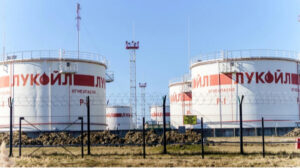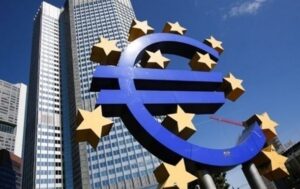
In November 2025, banks increased lending by 2.6%, or UAH 33.5 billion, to UAH 1 trillion 347.5 billion, and increased the deposit base by 0.9%, or UAH 27.1 billion, to UAH 2 trillion 982.1 billion, according to the National Bank of Ukraine (NBU).
According to the regulator, the main growth in the loan portfolio was provided by the corporate segment, where the volume of loans increased by 2.6%, or UAH 25.4 billion, to UAH 995.5 billion.
Hryvnia loans to businesses increased by 2.5%, or UAH 17.1 billion, to UAH 706.9 billion, while foreign currency loans increased by 2.4%, or $160 million, to $6.84 billion.
Households also increased their loans by 2.6%, or UAH 8.6 billion, to UAH 343.5 billion.
The increase in deposits in November is associated with an increase in the volume of deposits from individuals: hryvnia deposits grew by 1.1%, or UAH 14.9 billion, to UAH 1 trillion 355.5 billion, while foreign currency deposits increased by 0.9%, or $95 million, to $10.66 billion in dollar terms.
As for legal entities, their hryvnia deposits increased in November by 0.7%, or UAH 11.4 billion, to UAH 1 trillion 555.8 billion, while foreign currency deposits decreased by 5.9%, or $615 million, to $9.78 billion.
The National Bank noted that during the month, the dollar exchange rate rose to 42.1928 UAH/$1 from 41.9701 UAH/$1, with a historic low of 42.4015 UAH/$1 recorded on November 26.
Since the beginning of the year, the volume of hryvnia loans to legal entities has increased by 21.5%, and loans to the population – by 25.3%. As for foreign currency loans, businesses increased them by 13.7%, while the population reduced them by 11.1% – to $237 million.
Hryvnia deposits of legal entities have grown by 2.7% since the beginning of the year, while foreign currency deposits have decreased by 3.0%. The population has increased its hryvnia deposits by 14.0% over 11 months, and foreign currency deposits by 7.5%.

According to Serbian Economist, Saudi company Midad Energy is considered one of the main contenders for the purchase of foreign assets of Russian oil company LUKOIL, which include retail assets in Serbia, Reuters reports, citing sources.
According to the agency, this involves LUKOIL’s international asset portfolio, with an estimated value of around $22 billion, which includes oil and gas fields, oil refineries, and a network of gas stations in approximately 20 countries. The sale is linked to tough US and UK sanctions against the company, imposed in October 2025.
Reuters notes that Midad Energy CEO Abdulelah Al-Aiban is the brother of Saudi Arabia’s national security adviser Musaed Al-Aiban. According to sources, the company is preparing a cash offer with funds placed in an escrow account until the sanctions against LUKOIL are lifted.
In addition to Midad Energy, ExxonMobil, Chevron, private investment fund Carlyle Group, Emirati conglomerate International Holding Company (IHC), Hungarian MOL, trader Gunvor, Xtellus Partners bank (together with a group of investors led by Todd Boehly and the Emirati Allied Investment Partners), Abu Dhabi state-owned company ADNOC, and Austrian entrepreneur Bernd Bergmeier.
Source: https://t.me/relocationrs/1949

Business activity in the euro area at the end of 2025 grew weaker than expected amid a deepening recession in manufacturing and slower growth in the dominant services sector, according to preliminary data from the business activity index (PMI) prepared by HCOB and S&P Global.
According to the assessment, the HCOB Flash Eurozone Composite PMI declined to 51.9 points in December from 52.8 points in November, falling to its lowest level in three months and below the forecast of analysts polled by Reuters. The value above 50 points still indicates an increase in business activity.
The situation in industry continues to drag the index down: the eurozone manufacturing PMI in December fell to 49.2 points, the lowest since April, reflecting the continued decline in output and a steeper new orders slump, the largest since February. Deepening weakness in German industry was cited as the main factor, while France showed cautious signs
In the services sector, business activity is still picking up but the pace is slowing, with the services PMI down to 52.6 points from 53.6 points in November. Meanwhile, companies continue to increase employment, but business optimism fell to its lowest level since May, indicating that businesses are cautious about the outlook for 2026.
According to a Reuters poll of analysts, rising cost pressures and output prices at the end of the year do not change the overall picture: inflation in the eurozone has moved closer to the 2% target on average, and the market in the baseline scenario expects the European Central Bank’s key rates to remain unchanged until at least 2027.

Over 2 million customers fill up their cars with high-quality Euro-5 fuel using the convenient UKRNAFTA app, which is now two years old.
Every day, thousands of people join the big UKRNAFTA family and get access to a loyalty program that allows them to buy fuel at a discount every month and access all our activities.
During this time, people who visited gas stations and used the UKRNAFTA app:
• filled up with 484 million liters of the best European-quality fuel;
• purchased 2.8 million liters of fuel for their wallets;
• tasted 95,000 burgers and 193,000 hot dogs;
• drank almost 3 million hot drinks.

We are especially proud that it was the people who refuel at UKRNAFTA who helped raise UAH 104.7 million in aid for the Second Corps of the National Guard of Ukraine “Charter”, the ‘Boriviter’ military school, and the National Children’s Specialized Hospital “Okhmatdyt”.
Thanks to additional discounts on fuel, food, drinks, and other goods, the military was able to save more than UAH 94 million.
We remind you that thanks to the UKRNAFTA app, everyone can get an immediate discount of UAH 2 per liter of gasoline and diesel fuel, as well as UAH 0.5 per liter of LPG for 200 liters per month.
JSC Ukrnafta is Ukraine’s largest oil production company and operates the largest national network of gas stations, UKRNAFTA. In 2024, the company entered into an asset management agreement with Glusco. In 2025, it completed an agreement with Shell Overseas Investments BV to purchase the Shell network in Ukraine. In total, it operates 663 gas stations.
The company is implementing a comprehensive program to restore operations and update the format of its network of gas stations. Since February 2023, it has been issuing its own fuel vouchers and NAFTAKarta cards, which are sold to legal entities and individuals through Ukrnafta-Postach LLC.
The largest shareholder of Ukrnafta is Naftogaz of Ukraine with a 50%+1 share.
In November 2022, the Supreme Commander-in-Chief of the Armed Forces of Ukraine decided to transfer to the state the corporate rights of the company that belonged to private owners, which is now managed by the Ministry of Defense.

The National Bank of Ukraine has applied to PJSC “European Insurance Alliance” (Kiev) a measure of influence in the form of a fine of UAH 100 thousand for submitting reports to the regulator with violation of deadlines. Such decision was taken by the Committee for Supervision and Regulation of Non-banking Financial Services Markets on December 15, 2025, based on the results of the on-site supervision of the non-banking financial services market.
The company is obliged to pay the fine within one month from the date of entry into force of this decision.
PJSC “European Insurance Alliance” was founded on September 22, 1994. The Company is a member of the Motor (Transport) Insurance Bureau of Ukraine, the League of Insurance Organizations of Ukraine and the Nuclear Insurance Pool of Ukraine.
The company has a license of the NBU dated April 25, 2024 to carry out insurance activities in 16 classes, in particular property insurance, car insurance, liability insurance, health insurance and the like.
The authorized capital amounts to UAH 55 mln.

By 2035, Europe may face street protests and conflicts between people and service robots amid mass robotization of the service sector and the displacement of some workers from the labor market, according to a new Europol analytical report, The Unmanned Future(s): The Impact of Robotics and Unmanned Systems on Law Enforcement.
According to the British newspaper The Daily Telegraph, citing the document, Europol estimates that by the mid-2030s, robots and unmanned systems will be widely used in areas such as delivery and cleaning, which could lead to job losses among low-skilled workers from disadvantaged areas and cause protests accompanied by attacks on robots and infrastructure, including medical devices and service machines.
The report emphasizes that the widespread introduction of robotic systems could change not only the labor market, but also the landscape of crime and law enforcement in the EU, including new threats ranging from attacks on service robots to the use of drones for criminal purposes.
At the same time, a number of experts interviewed by the media express doubts about the realism of a “war between humans and robots” scenario in the next ten years, pointing out that the development of regulation and retraining programs could mitigate the social risks of robotization.